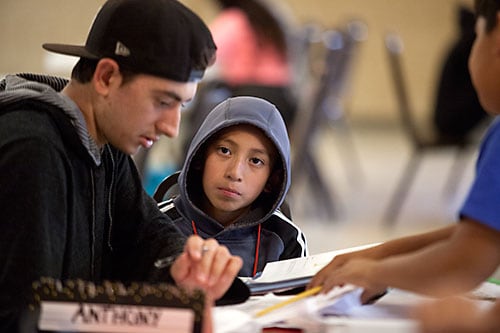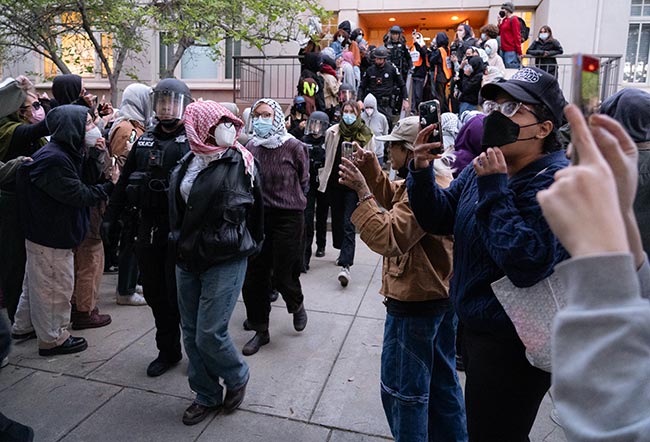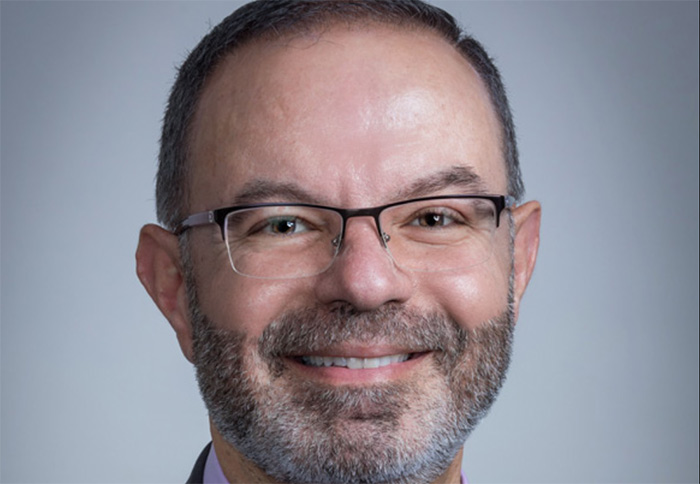CLASP offers golden opportunity for at-risk kids

It wasn’t a signal of the start of the holiday season but instead a hallmark of excellence as Claremont After-School Programs (CLASP) joined 58 recipients in winning the state’s leading educational honor, the Golden Bell Award.
The California School Boards Association presented the recognition—which takes the form of an actual ringing bell—to Teddie Warner, president of CLASP’s board of directors, and past president Carole Harter at a December 1 recognition ceremony. Claremont Unified School District Superintendent Jim Elsasser and the local school board, who happened to be in San Francisco for a meeting concurrent with the ceremony, were on hand to cheer for the Claremont nonprofit.
The Golden Bell Award honors programs that are “innovative and sustainable, make a demonstrated difference for students, and focus on the needs of all students.” It is certainly an apt description for Claremont After-School Programs, which provides much-needed academic and emotional support for some 150 of the city’s most vulnerable kids.
The playing field for academic success is not always level. Some kids bring their homework home to a household that speaks only Spanish. Some kids trade school for an empty house, whiling away the time with TV, video games and unhealthy snacking until their parents get home.
With this in mind, CLASP offers a 2-hour program to which participating elementary school children head 3 days a week after school for homework assistance, mentoring, a healthy snack and recreation.
“For those kids who don’t have academic support, it’s such a gift,” said CLASP program director Maia Dean.
How it all started
In the early 1990s, 2 programs were formed in response to youth needs identified by the city’s first Youth Master Plan: the Youth Wellness Center and the Claremont Tutorial Centers. The programs merged in 2005 to become CLASP, and the program continues to steadily grow.
Recently CLASP has added a new location, The Claremont Club, to sites like Claremont Presbyterian Church, Good Shepherd Evangelical Lutheran Church, Wheeler Park and the Claremont Village Apartments. The kids’ participation in the afterschool program is encouraged by teachers who single them out as needing some extra help. They gather at a stone house in the club and break out their homework, working for an hour with the assistance of a tutor. In many cases, the ratio is 2 students to one tutor. The ideal ratio is one-to-one but, given the nonprofit’s ambitious scope—15 kids at 5 sites, 3 days a week—it’s hard to rustle up the needed amount of volunteers.
Ms. Dean noted a recent study finding that, on average, parents spend only about 5 minutes per day talking to their kids.
“More than anything, the individual attention our kids get is priceless—having that connection with an adult who shows interest in them succeeding academically,” she said.
After a snack, the kids, who in the case of The Claremont Club site are in fourth through sixth grades, adjourn for recreation. Mostly, they hit the pool or the racquetball courts or the junior fitness room. If a kid’s recreation time coincides with one of the youth fitness classes, like kickboxing, Handball Mania or Jr. Hooping, he or she can join young Club members in the class.
In the movie Mary Poppins, the title character sings a song about making work fun: “Just a spoonful of sugar makes the medicine go down…” Likewise, the one-on-one attention, camaraderie with other kids and fun activities offered by CLASP encourage students to buckle down to homework.
“When I was a kid, if someone said I had to go to tutoring, I wouldn’t be happy about it,” said Nathan Rhodes, coordinator for CLASP’s Claremont Club site. “But I think the program really provides a fun atmosphere for kids to do afterschool work.”
Roman Martinez, a Vista Elementary School fifth grader in his second year with the afterschool program, concurs.
“It has a lot of activities. I like the hula hooping and the exercise machines,” he said.
When Roman struggles with math, he is assisted by one of the CLASP tutors.
“They’re nice,” he said.
Elise Adams, a Pitzer freshman who serves as a CLASP tutor at The Claremont Club one afternoon a week, takes that as a compliment, because she feels motivated to make a difference in kids’ lives. She went to her college’s community engagement center at the start of the schoo year looking for just such an opportunity.
“I thought about helping in the classroom but I figure this directly benefits kids, rather than making a teacher’s job easier,” Ms. Adams said.
She delights, however, in making her students’ job easier.
“I feel like in school, a lot of them don’t get the one-on-one attention that’s needed,” Ms. Adams said. “So helping kids learn how to learn is really beneficial.”
CLASP participants’ parents pay what they can to offset program costs. Even $10 a month can be a struggle for some, but Ms. Dean finds it moving how many families insist on contributing.
“They really see the value of the program,” she said.
Local teachers, who report positive changes in their students’ homework habits and attitudes after they’ve been with CLASP, also see the value.
“You have students who are having problems with a certain subject and all of the sudden something clicks. They take a test and suddenly the thing they were struggling with is their biggest strength,” Ms. Dean said.
Anyone interested in helping local kids experience such “a-ha moments” is encouraged to become a CLASP tutor. Volunteers range from high school and college students all the way to retired teachers.
For more information on volunteering, visit www.clasp4kids.org or contact CLASP program director Maia Dean by phone, 624-9693, ext.313, or email (clasp.office@gmail.com).
—Sarah Torribio
storribio@claremont-courier.com








0 Comments